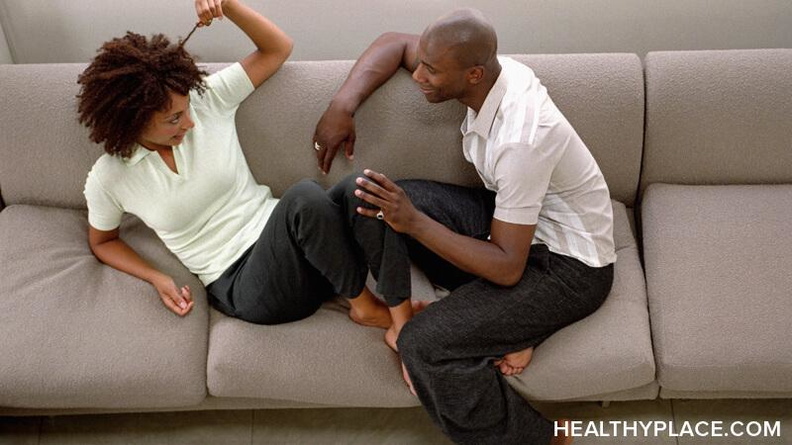What is Physical Intimacy?

Physical intimacy isn't just jumping into bed with someone. Here's the definition of physical intimacy as well as barriers to physical intimacy and ways to overcome them.
Physical Intimacy
Physical intimacy includes both sensuous and sexual activity usually between two persons and the sharing of reactions, thoughts, and emotions that are involved in these activities.
Actually, physical intimacy includes a wide range of behavior. Everything from hand-holding to all day love-making. It includes a broad range of physical contact such as:
- foreplay or non-coital sexual activity
- bathing together
- swimming together
- pleasuring
- caressing each other's body
- sexual intercourse
- the afterglow (e.g., the tender words that are exchanged after sexual activity)
Potential Barriers to Physical Intimacy
Physical intimacy is sometimes difficult to develop and at times, barriers may emerge:
- One of the main barriers is the narrow focus that most people place on their behavior in this area. Usually, people tend to focus on sexual intercourse as if it were the only expression of sensuous or sexual feelings toward another person. If fact, proceeding too rapidly to and through sexual intercourse is one of the major complaints many women have about their physical intimate relationships with their partner.
- Another barrier to comfortable expression of physical intimacy occurs when one ignores one's apprehensiveness about a particular activity or the timeliness of a particular behavior. Apprehensiveness ignored can produce sexual barriers, blocks, and turn-offs. One of the sources of apprehensiveness may be the fear that is involved in physical intimacy.
Fears that may be connected to physical intimacy:
- One fear is the fear of being touched. Some persons are not very accustomed to being touched, to being caressed, to being comfortable with tactile stimulation.
- There may the fear of breaking a taboo. There are a number of taboos in many cultures related to physical intimacy. Even when a person is married, it is often difficult to turn off the effect of some of these taboos with which they have lived prior to marriage.
- There is the fear of losing control of oneself, of abandoning oneself to physical enjoyment. Physical intimacy frequently involves giving up control - letting go, and for a person who is afraid of losing control, this can be an anxious situation.
- Many people fear pregnancy as a result of physical intimacy. Although contraceptive information and birth control techniques are readily available, people hold fears about pregnancy, perhaps from information or myths that stem from childhood or adolescence. These fears can interfere with feeling comfortable in a physically intimate relationship.
- There is the fear of sexually transmitted disease (STDs), which in many cases is a realistic fear particularly if either of the partners has engaged in sexual activity with other partners and if either of the partners is not practicing safe sex techniques.
- There is the fear of guilt or condemnation either from peers, family members, or in some cases from the church.
- For many people, physical intimacy is a novel experience. For a person proceeding into a physically intimate relationship, there are many new things to experience. If a person is apprehensive about novel experiences, the fear associated with novel experiences will create barriers to physical intimacy.
Ways to Overcome Obstacles to Physical Intimacy
- One of the main things a person can do is to take things at his or her own rate - a rate with which he or she is comfortable.
- It is important to give oneself permission to say "no" when "no" is the right answer for you; and conversely, to give yourself permission to say "yes" when "yes" is the right answer and being willing to take responsibility for the consequences of those decisions and actions. When these yes and no answers come from one's own personal system of values, one's comfort with physical intimacy increases.
- Become aware of one's fear and what may be producing the apprehensiveness about physical intimacy. Once the fear is acknowledged, one can work with it.
Suggested Books
- Sense Relaxation: Below Your Mind. Bernard Gunther
- The Joy of Sex. Alex Comfort
- Total Sex. Otto and Otto
- The Pleasure Bond. Masters and Johnson
Note: This document is based on an audio tape script developed by the University of Texas, Austin. With their permission, it was revised and edited into its current form by the staff of the University of Florida Counseling Center.
APA Reference
Staff, H.
(2021, December 22). What is Physical Intimacy?, HealthyPlace. Retrieved
on 2026, January 12 from https://www.healthyplace.com/relationships/intimate-relationships/what-is-physical-intimacy

